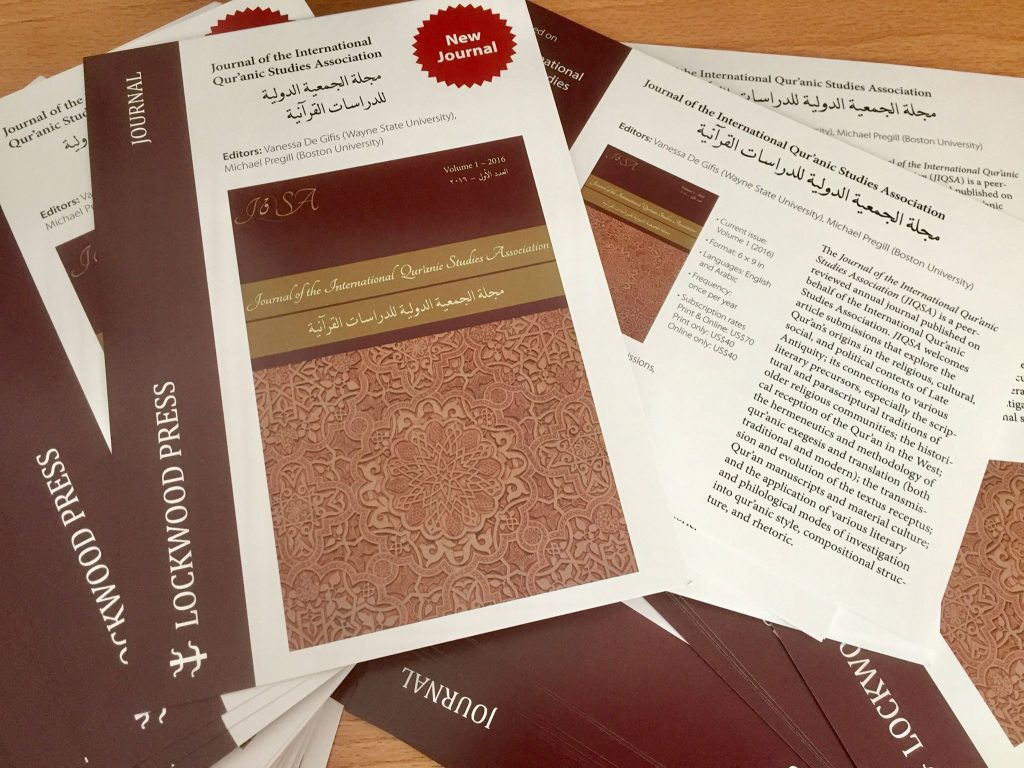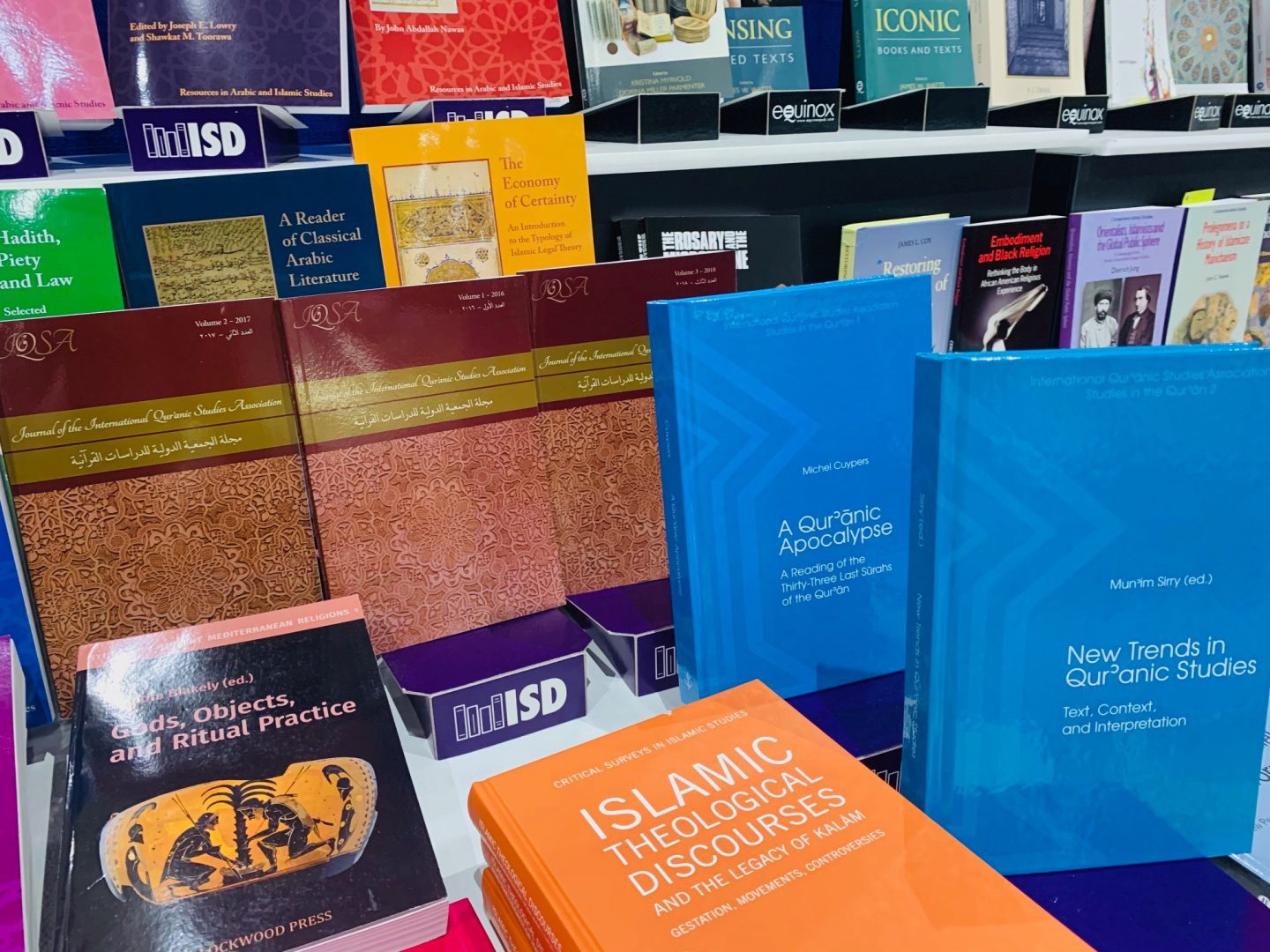About JIQSA/CfP
JIQSA is an annual collection. of original, quality research articles. Methodologies of particular interest to the journal include historical-critical, contextual-comparative, and literary approaches to the Qur’an. JIQSA especially welcomes articles that explore the Qur’an’s origins in the religious, cultural, social, and political contexts of Late Antiquity; its connections to various literary precursors, especially the scriptural and parascriptural traditions of older religious communities; the historical reception of the Qur’an in the west; the hermeneutics and methodology of qur’anic exegesis and translation (both traditional and modern); the transmission and evolution of the textus receptus; Qur’an manuscripts and material culture; and the application of various literary and philological modes of investigation into Qur’anic style, compositional structure, and rhetoric.
Articles to be considered for publication may reflect a variety of disciplinary perspectives, but should be:
- located in and engaged with the relevant scholarly literature, building on existing knowledge;
- conscious of authorial perspective and positionality, and explicit about aims, theoretical posture, and methodology;
- reflective about their impact on larger issues and debates in the academic field of Qur’anic Studies and in broader public discourses around the Qur’an and Islam.
Submissions should be uploaded electronically, in both Microsoft Word and PDF formats, to http://lockwoodonlinejournals.com/index.php/jiqsa/about/submissions. Please ensure that the documents you upload are anonymized for peer review. As a rule of thumb, articles should be between 10,000 and 15,000 words including footnotes, using 12-pt Times New Roman font double-spaced for the body and 11-pt single-spaced font for footnotes. Shorter or longer articles may be accepted for review at the discretion of the editors. Authors are encouraged to conform their submission to our current JIQSA Style Sheet.

Editors
Nicolai Sinai, University of Oxford, UK (volumes 3 and following)
Editorial Board
Anne-Sylvie Boisliveau, University of Strasbourg, France
Majid Daneshgar, University of Otago, New Zealand
Vanessa De Gifis, Wayne State University, USA
Reuven Firestone, Hebrew Union College, USA
Asma Hilali, University of Lille, France
Marianna Klar, University of Oxford, UK
Michael Pregill, University of California, Los Angeles, USA
John Reeves, University of North Carolina at Charlotte, USA
Sarra Tlili, University of Florida, USA
Shawkat Toorawa, Yale University, USA
Copy Editors
Ryann Craig, Catholic University of America, USA (vol. 1)
Adam Zeidan, Catholic University of America, USA (vol. 2)
Saqib Hussain, University of Oxford (vols. 3+)
Subscription Information
Subscriptions
At this time institutions are strongly encouraged to subscribe for print or online access by filling out this SUBSCRIPTION FORM. Print subscriptions are also available for individual subscribers via THIS FORM.
DOWNLOAD PDF (Subscription Form)
ISSN 2474-8390 (Print)
2474-8420 (Online)
Subscription Rates:
Print and Online: US$70
Print only: US$40
Online only: US$40
JSTOR
JIQSA is now accessible through the online academic digital library JSTOR. Libraries and other institutions with a subscription to JSTOR can access JIQSA 1 (2016) HERE.
Member Access
Full online access to the Journal of the International Qur’anic Studies Association is available by signing in to the member portal at iqsaweb.org HERE. Use the top menu to navigate to “JIQSA” and select the desired volume via the drop-down menu.
If you experience trouble logging in, please email contactus@iqsaweb.org to reset your password or confirm your membership.
Renew or sign up for IQSA membership HERE for full access to JIQSA, RQR, and more!
The Journal of the International Qur’anic Studies Association (JIQSA) is a peer-reviewed annual journal devoted to the scholarly study of the Qur’an. Our goals are to:
- publish scholarship of high technical quality on the Qur’an, discussing its historical context; its relationship to other religious text traditions; and its literary, material, and cultural reception;
- cultivate Qur’anic Studies as a growing field with a distinctive identity and focus, while acknowledging relevant linkages to the study of the Bible as well as the Islamic tradition, including tafsīr;
- facilitate crucial conversations about the state of the field in Qur’anic Studies and the future of the discipline;
- connect diverse scholarly communities from around the world on issues of common concern in the study of the Qur’an.
